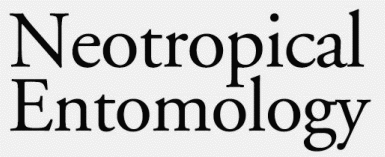The parasitic mite Acarophenax lacunatus (Cross & Krantz) is a potentially important biocontrol agent of stored grain insect pests, but its presence in insect mass rearing is undesirable. This study was carried out to evaluate the susceptibility of A. lacunatus to sulfur. The experimental units were petri dishes containing 30 g of whole wheat grains infested with 30 adults of Rhyzopertha dominica (Fabricius) (Coleoptera: Bostrichidae). The treatments consisted of pulverizing the wheat grains with sulfur, at 0, 0.15, 0.3, 0.6, 0.9 and 1.2 mg a.i./g, in five replicates. Three inoculations of A. lacunatus were carried out in each petri dish at five, ten and fifteen days after infestation with R. dominica. The petri dishes were stored for 60 days at 30 ± 1ºC, 60 ± 5% R.H. and 24h scotophase. The parasitic mite was susceptible to all sulfur doses used in the test. The number of eggs of R. dominica parasitized by A. lacunatus showed a decreasing trend with the increase in doses of sulfur, as did the number of physogastric females of the mite. The mite showed a negative correlation of their instantaneous rate of increase with sulfur dose. No mites developed at sulfur doses higher than 0.3 mg a.i./g. The susceptibility of A. lacunatus to sulfur is an important aspect to consider in the control of this parasitic mite in colonies of R. dominica. In addition, this control method has low cost and is easy to use.
Acari; stored grain; mass rearing; Rhyzopertha dominica; acaricide



